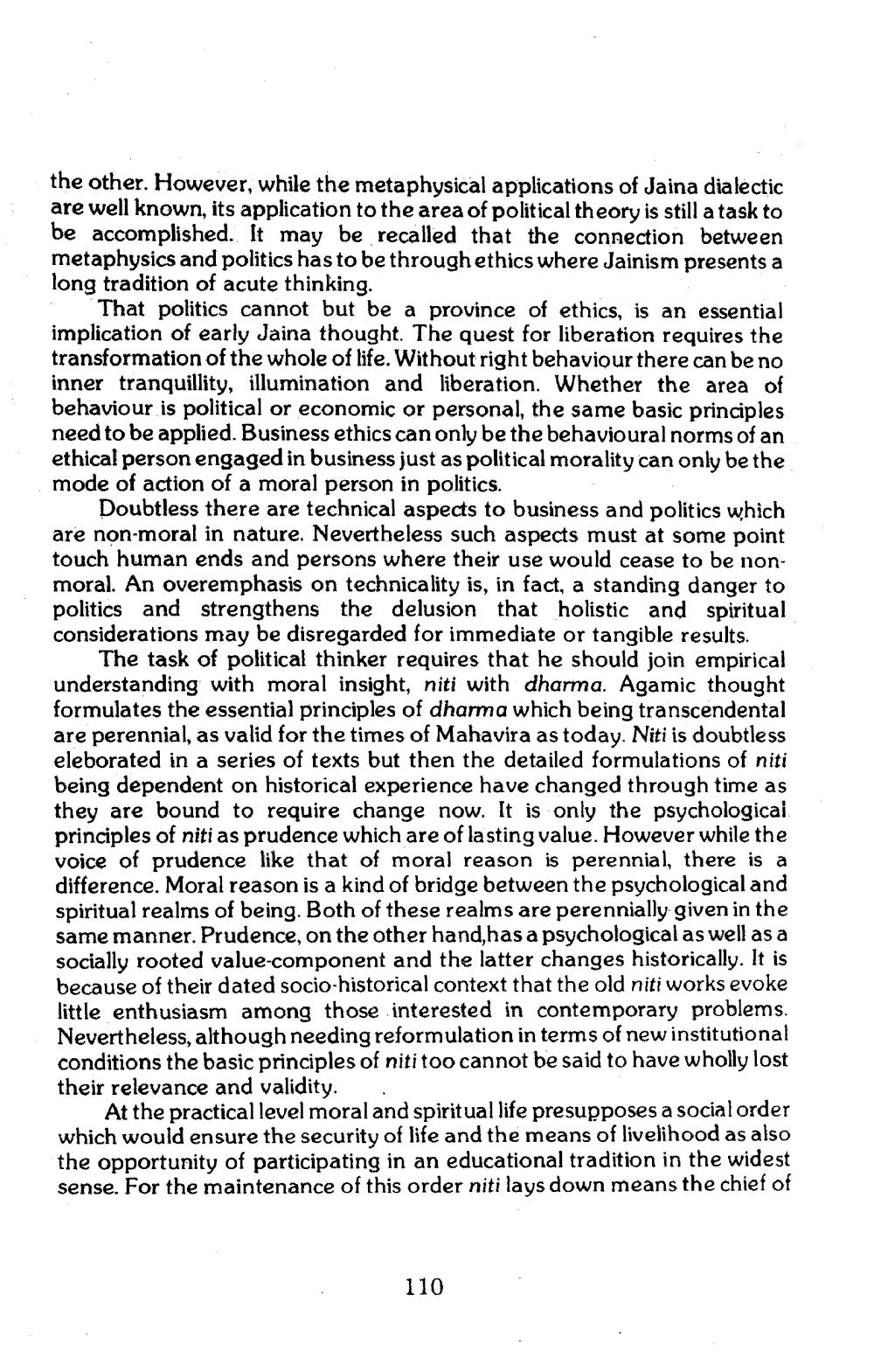________________
S
DU
the other. However, while the metaphysical applications of Jaina dialectic are well known, its application to the area of political theory is still a task to be accomplished. It may be recalled that the connection between metaphysics and politics has to be through ethics where Jainism presents a long tradition of acute thinking.
That politics cannot but be a province of ethics, is an essential implication of early Jaina thought. The quest for liberation requires the transformation of the whole of life. Without right behaviour there can be no
tranquillity, illumination and liberation. Whether the area of behaviour is political or economic or personal, the same basic principles need to be applied. Business ethics can only be the behavioural norms of an ethical person engaged in business just as political morality can only be the mode of action of a moral person in politics.
Doubtless there are technical aspects to business and politics which are non-moral in nature. Nevertheless such aspects must at some point touch human ends and persons where their use would cease to be nonmoral. An overemphasis on technicality is, in fact, a standing danger to politics and strengthens the delusion that holistic and spiritual considerations may be disregarded for immediate or tangible results.
The task of political thinker requires that he should join empirical understanding with moral insight, niti with dharma. Agamic thought formulates the essential principles of dharma which being transcendental are perennial, as valid for the times of Mahavira as today. Niti is doubtles eleborated in a series of texts but then the detailed formulations of niti being dependent on historical experience have changed through time as they are bound to require change now. It is only the psychological principles of niti as prudence which are of lasting value. However while the voice of prudence like that of moral reason is perennial, ther difference. Moral reason is a kind of bridge between the psychological and spiritual realms of being. Both of these realms are perennially given in the same manner. Prudence, on the other hand, has a psychological as well as a socially rooted value-component and the latter changes historically. It is because of their dated socio-historical context that the old niti works evoke little enthusiasm among those interested in contemporary problems. Nevertheless, although needing reformulation in terms of new institutional conditions the basic principles of nititoo cannot be said to have wholly lost their relevance and validity. .
At the practical level moral and spiritual life presupposes a social order which would ensure the security of life and the means of livelihood as also the opportunity of participating in an educational tradition in the widest sense. For the maintenance of this order niti lays down means the chief of
110




